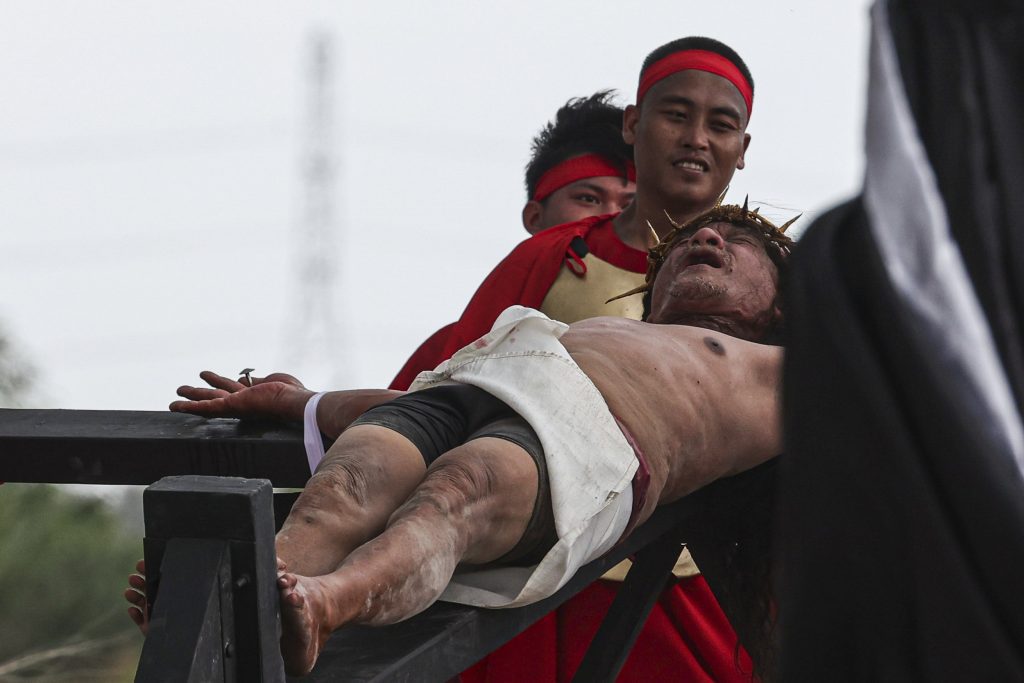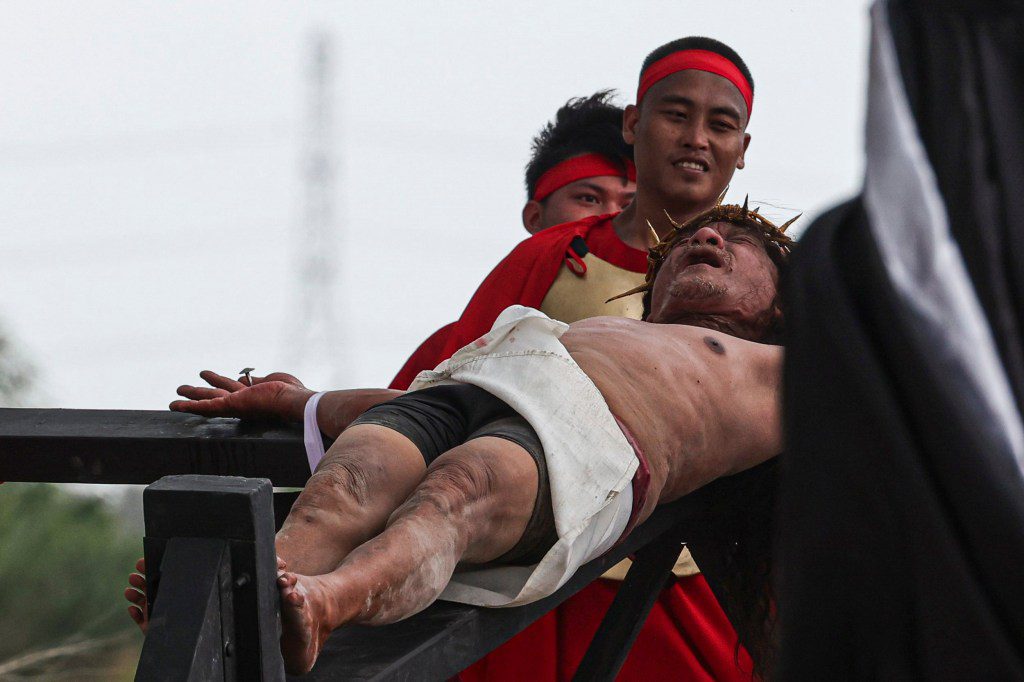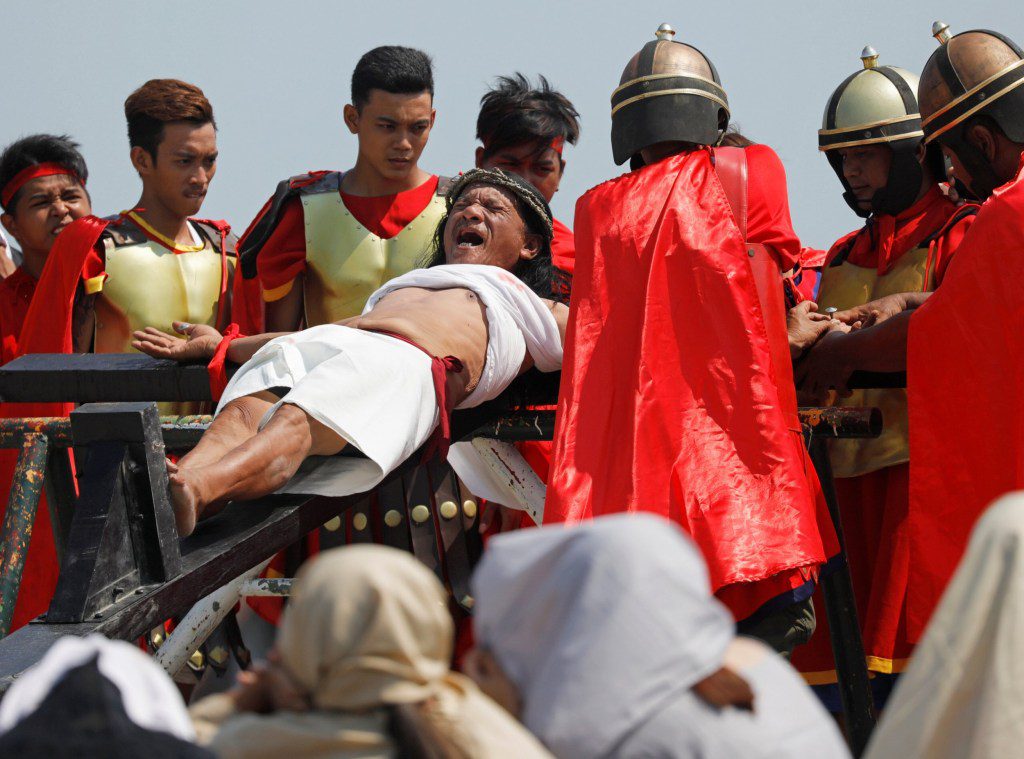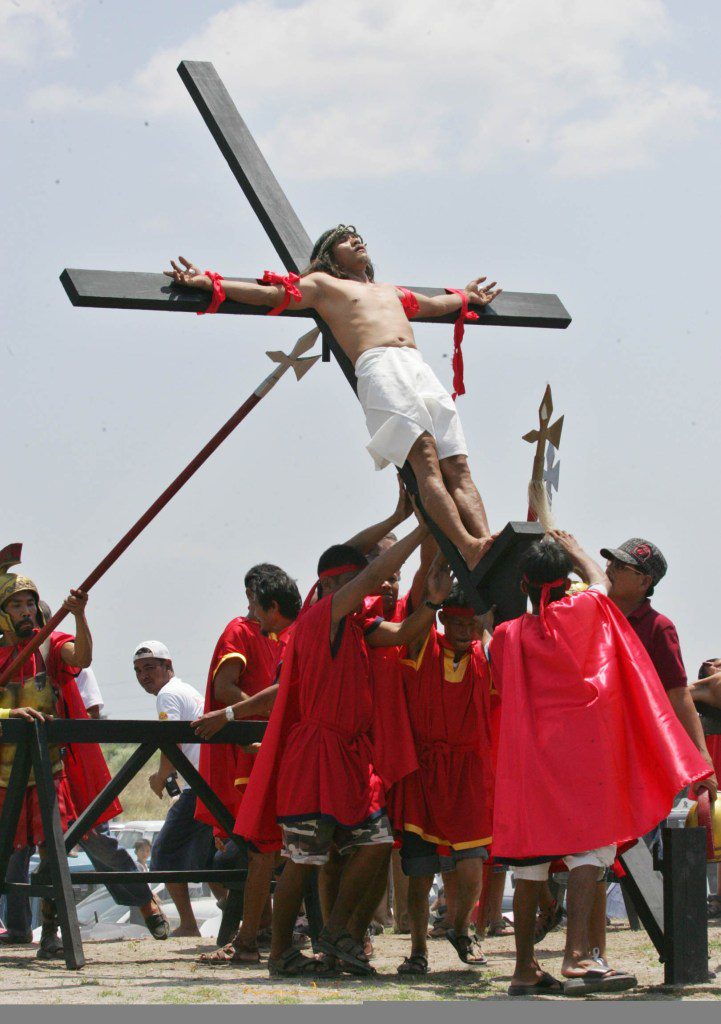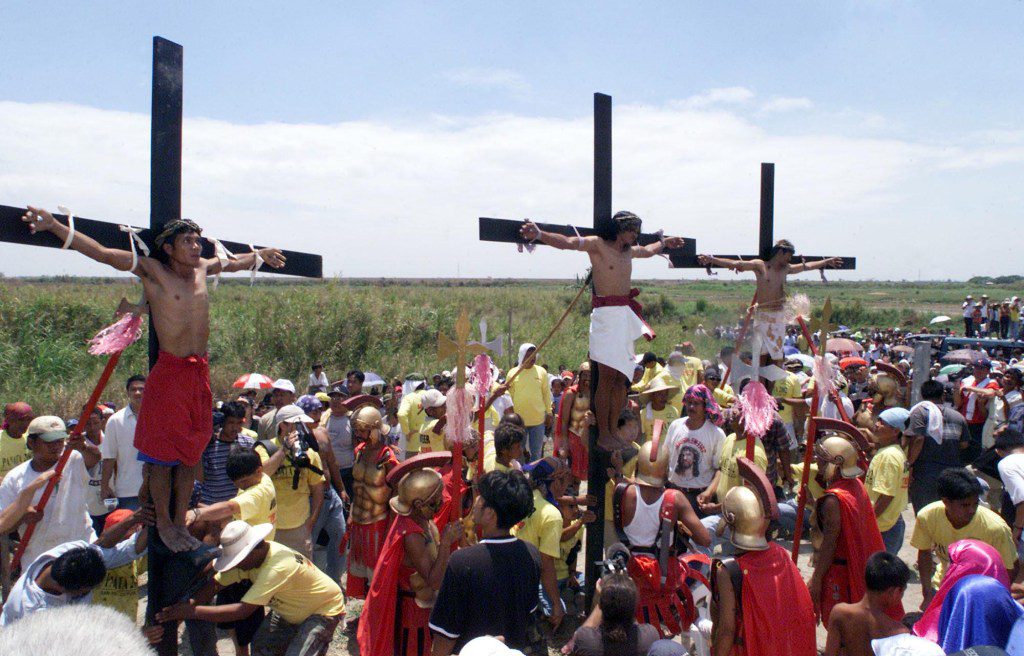A man who had been nailed to a cross 35 times to observe Good Friday has stated that he is now too old for it.
Ruben Enaje, a 63-year-old carpenter and sign painter, has taken part in the real-life crucifixions in a village north of Manila, in the Philippines, for the last 35 years.
In the 1980s, he survived almost completely unhurt a fall from a three-story building, which led him to undergo the crucifixion as a way of showing gratitude for what he considered a miracle.
He then became a village celebrity for his portrayal as ‘Christ’, but due to his age, he has been thinking about ending his yearly religious penance.
‘Because my body is getting weaker, I can’t say for sure if there will be another one or if this is truly the last time,’ Ruben said.
The volunteers carry a wooden cross for more than half a mile while wearing a thorny crown of twigs under the hot summer sun.
Village actors dressed as Roman centurions hammered 4-inch (10-centimeter) stainless steel nails through their palms and feet, then put them up on wooden crosses for about 10 minutes.
Many of the mostly impoverished penitents undergo the ritual to make amends for their sins, pray for the sick or for a better life, and give thanks for miracles.
The horrifying spectacle reflects the Philippines’ unique form of Catholicism, which combines church traditions with folk superstitions.
Church leaders in the Philippines, the largest Catholic nation in Asia, have disapproved of the crucifixions and self-flagellations.
Filipinos can show their faith and religious devotion, they say, without hurting themselves and by doing charity work instead, such as donating blood, but the tradition has lasted for decades.
Ruben is also worried about the territorial dispute between China and the Philippines in the South China Sea.
He said: ‘China has many big ships. Can you imagine what they could do?
‘This is why I always pray for peace in the world.’
The conflicts in Ukraine and Gaza are also contributing to the rising prices of oil, gas, and food in the country, making it more difficult for people in rural communities to afford essentials.
Ruben said: ‘If these conflicts worsen and spread, more people, especially the young and old, would be affected. These are innocent people who have totally nothing to do with these conflicts.’
.





